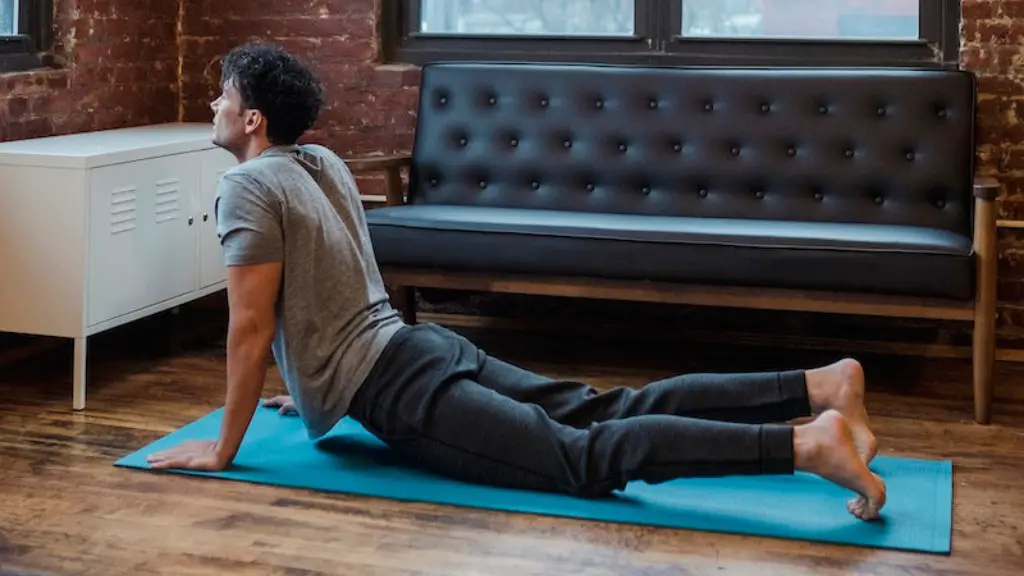While the jury is still out on whether stress can directly cause osteoporosis, there is compelling evidence to suggest that it can indirectly lead to the condition. For example, stress can lead to unhealthy behaviors like smoking and excessive drinking, both of which are risk factors for osteoporosis. In addition, stress can interfere with the body’s ability to absorb calcium, a essential nutrient for bone health. So while more research is needed to confirm the link between stress and osteoporosis, it’s certainly possible that the two are connected.
There is no definitive answer to this question as the research on the matter is inconclusive. Some studies suggest that there is a link between stress and osteoporosis, while others find no correlation. It is possible that stress may be a contributing factor to osteoporosis, but more research is needed to confirm this.
Can stress bring on osteoporosis?
Chronic stress has been linked to alterations in catecholamines, which may in turn impact bone health and contribute to the risk and severity of osteoporosis. These studies suggest that addressing chronic stress may be an important part of osteoporosis prevention and treatment.
Osteoporosis is more likely to occur in people who have:
– Low calcium intake: A lifelong lack of calcium plays a role in the development of osteoporosis.
– Eating disorders: Severely restricting food intake and being underweight weakens bone in both men and women.
– Gastrointestinal surgery: Certain types of surgery can reduce the absorption of calcium, leading to osteoporosis.
Can anxiety affect your bones
When we worry or become anxious, our bodies release a hormone called cortisol. Cortisol at normal levels is a helpful natural steroid, but when we stress too much and for too long it can have a negative lasting effect on our bones.
When stress becomes chronic, it can lead to calcium depletion and potentially more porous bones, brittle bones and osteoporosis. A healthy diet is important for maintaining bone health, but it may not be enough to offset the effects of chronic stress.
Can you have temporary osteoporosis?
TO is a clinical syndrome characterized by joint pain and the presence of bone marrow edema on MRI, both of which spontaneously resolve over time. TO most commonly affects the hip, but also may involve other lower extremity sites.
There are a number of medical therapies that can help prevent or reverse the loss of bone density. These include medications that can slow the loss of bone density, maintain bone density, or even help to rebuild bone density. Your doctor will be able to recommend the best course of treatment for you, depending on your individual situation.
What is the fastest way to increase bone density?
Weight-bearing exercises help to build strong bones and slow bone loss by forcing the bones to work against gravity. These exercises can include walking, jogging, and climbing stairs.
Osteoporosis is a condition where the bones become weak and fragile. In its earliest stages, osteoporosis often shows no symptoms. However, low bone density in osteopenia, frequent fractures, and problems with your posture can all be signs of osteoporosis. If you have any of these symptoms, it’s important to see your doctor so that you can get treatment to prevent the condition from getting worse.
What is the average age to get osteoporosis
The WHO definition of osteoporosis is the lowest bone mass at any site. Based on this definition, the prevalence of osteoporosis in Caucasian postmenopausal women in the US is estimated to be 14% of women aged 50-59 years, 22% of women aged 60-69 years, 39% women aged 70-79 years, and 70% women aged 80 years or greater.
Osteoporosis is a condition that causes bones to become weak and fragile. It can be caused by a decrease in estrogen in women at the time of menopause and a decrease in testosterone in men as they age. Other risk factors for osteoporosis include being confined to a bed due to a prolonged illness, having certain medical conditions that cause increased inflammation in the body, and taking certain medications.
Why do I feel like my bones are deteriorating?
As we age, our bodies may reabsorb calcium and phosphate from our bones instead of keeping these minerals in our bones. This makes our bones weaker. When this process reaches a certain stage, it is called osteoporosis. Many times, a person will fracture a bone before they even know they have bone loss.
Stress fractures are a common injury for runners and other athletes who put a lot of impact on their bones. The best way to prevent stress fractures is to make sure you’re getting enough calcium and vitamin D in your diet, and to listen to your body when it comes to rest and recovery. If you’re experiencing pain or discomfort in your bones, it’s important to see a doctor to rule out any serious injuries.
What lifestyle choices causes osteoporosis
Osteoporosis is a condition that affects the bones, making them weak and fragile. It is most common in older adults, but can also occur in younger people.
There are a number of lifestyle factors that are associated with osteoporosis, including nutritional factors such as calcium, protein, and vitamin D intake, and behavioural factors such as physical activity, smoking, and alcohol consumption.
Making sure to get enough calcium, protein, and vitamin D, and staying physically active can help to prevent osteoporosis. avoided.
Osteoporosis is a disease that leads to the thinning of bones and makes them fragile and more likely to break. There are many risk factors for the development of osteoporosis, including insufficient amounts of dietary calcium, low vitamin D levels, cigarette smoking, alcohol intake of more than two standard drinks per day, caffeine intake of more than three cups of coffee or equivalent per day, lack of physical activity, and early menopause (before the age of 45).
What depletes calcium from your body?
Too much salt can lead to bone loss by causing the body to lose calcium. Try to limit the amount of processed foods, canned foods and salt added to the foods you eat each day. You can check the amount of sodium in a food by looking at the Nutrition Facts label.
Osteoporosis is a serious condition that can lead to severe pain, decreased height, and spinal deformity. People with osteoporosis may not have any symptoms, or they may only have mild discomfort. However, if a vertebra collapses, it can cause severe pain and disability.
Warp Up
While stress itself cannot cause osteoporosis, it can contribute to the development of the condition. When the body is under stress, it release hormones that can affect the body in a number of ways. One of these ways is by affecting the absorption of calcium, which can lead to bone loss and the development of osteoporosis.
There is no concrete evidence that stress can cause osteoporosis, but it is plausible that it could be a contributing factor. Osteoporosis is a condition that is characterized by a loss of bone density, which can make bones weak and brittle. While stress may not be the direct cause of osteoporosis, it could potentially worsen the condition.





